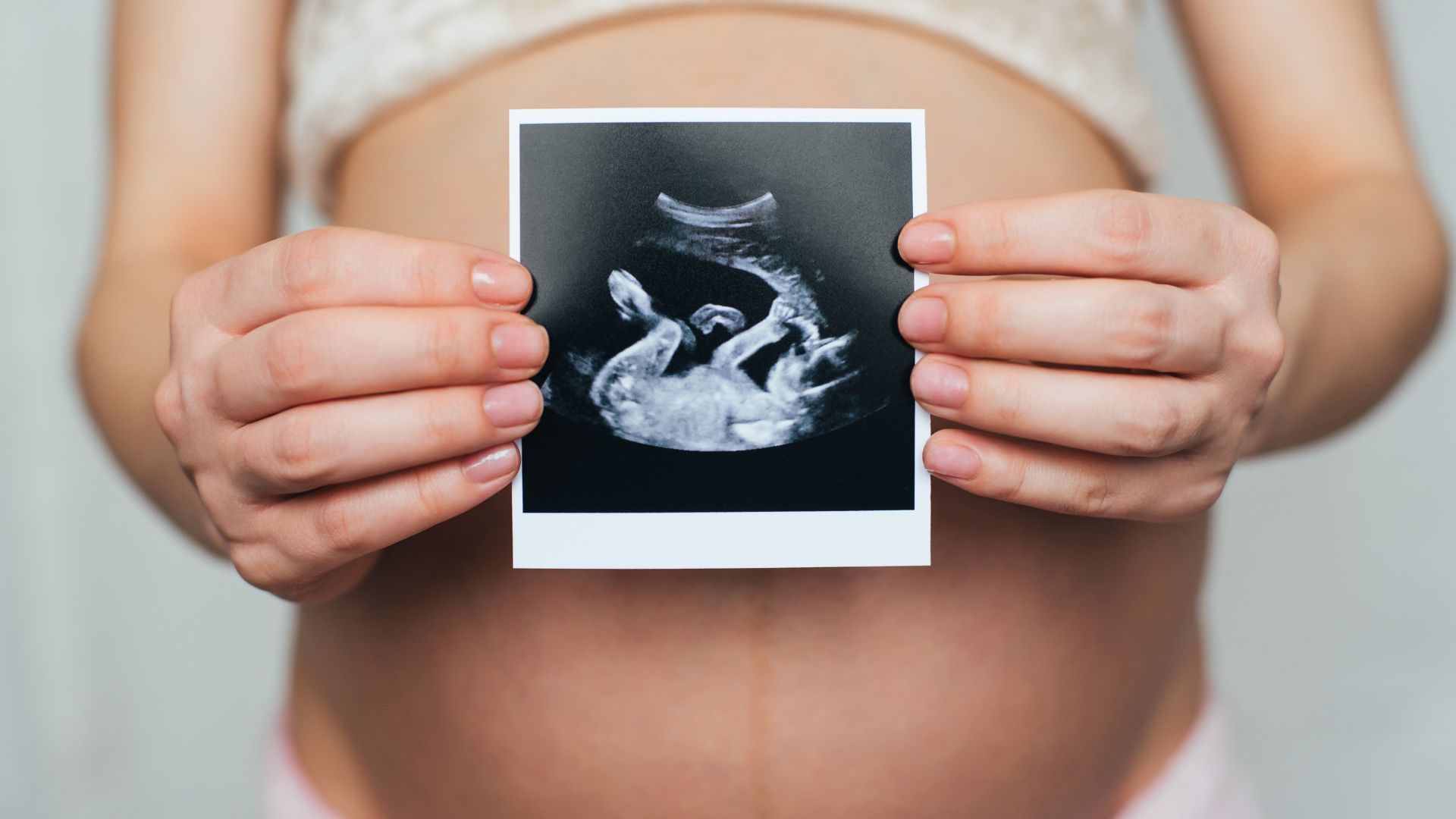
The journey of infertility can be an emotional rollercoaster, filled with ups and downs, hopes and disappointments.
When conventional fertility treatments like IVF fail to result in a successful pregnancy, many couples in India turn to embryo donation as a beacon of hope.
This in-depth guide dives into the complex world of embryo donation in India, covering the medical procedures, legal aspects, ethical considerations, and the financial and emotional factors involved.
| Key Takeaways |
|---|
| 1. Embryo donation offers hope to infertile couples, but it’s a complex process with medical, legal, and ethical considerations. |
| 2. Donated embryos undergo extensive screening to minimize health risks to the recipient and child. |
| 3. India has specific legal guidelines for embryo donation, including anonymity and donor consent. |
| 4. Choosing a reputable clinic is crucial, considering factors like success rates, experience, and counseling services. |
Section 1: The Process of Embryo Donation in India
Understanding the Medical Procedures
Embryo donation may sound like a daunting process, but let’s break it down into simple terms. Here’s what you need to know:
- The Source of Donated Embryos: Most donated embryos come from couples who underwent IVF and had more embryos than they needed for their own treatment.
- Donor Screening: Donors go through a rigorous testing process to minimize health risks:
- Genetic disorders: Donors are screened to reduce the chances of passing on inheritable diseases, similar to the process of preimplantation genetic screening.
- Infectious diseases: Tests for HIV, hepatitis, and other infections ensure the safety of the recipient and the child, much like the screening done for IVF with donor sperm or donor eggs.
- Embryo Matching: Clinics aim to find donors with similar characteristics to the recipient, such as ethnicity, hair color, and eye color. This helps promote a sense of biological connection, if desired, and is comparable to the matching process for egg donation.
Navigating the Legal Framework in India
The Indian Council of Medical Research (ICMR) sets the guidelines for embryo donation. Here are the key points you must know:
- Anonymity: In most cases, you won’t know the donors, and they won’t know you. This protects the privacy of all parties involved, but it also means limited access to the donor’s family medical history. The same principle applies to IVF with donor sperm and eggs.
- Donor Consent: Donors must provide written consent, indicating their understanding and agreement to relinquish all rights to any children born from their donated embryos. This is crucial for the legal rights of the intended parents, similar to the consent process in surrogacy.
- Clinic Approval: Not all fertility clinics are authorized to perform embryo donation. Ensure you choose from the list of licensed clinics on the ICMR website, just as you would when choosing the best IVF clinic for your needs.
Finding a Reputable Clinic: Your Actionable Checklist
Choosing the right clinic is a crucial decision. Don’t rush it! Use this checklist when evaluating potential clinics:
- Success Rates: Ask about the clinic’s success rates for embryo donation transfers resulting in pregnancies, and compare them to the general IVF success rates in India.
- Experience: Generally, clinics with more experience in embryo donation are preferable, as they may have better expertise in IVF lab procedures and protocols.
- Counseling Services: Given the emotional complexity of the process, good clinics should offer counseling and support services, recognizing the psychological effects of IVF and the unique challenges of using donor gametes.
Additional Resources
- Patient-Friendly Guide to IVF & Embryo Donation: A good starting point if you’re new to the world of assisted reproduction.
Remember, knowledge is power. By understanding the medical procedures, legal requirements, and how to choose a reputable clinic, you’re already taking significant steps towards your goal of parenthood through embryo donation.
Next up, we’ll explore the ethical considerations surrounding embryo donation in the Indian context.
Navigating the Ethical Landscape of Embryo Donation in India
Embarking on the path of embryo donation opens up a world of potential, but it also comes with its own set of ethical complexities.
In a country as diverse as India, with its rich tapestry of religions and cultural beliefs, it’s crucial to understand and navigate these ethical considerations with sensitivity and care.
Decoding the Religious Perspectives on Embryo Donation
India is home to a multitude of religions, each with its own unique beliefs about the origins of life. Here’s what you need to know:
| Religion | Perspective on Embryo Donation |
|---|---|
| Hinduism | Views vary within different branches, with some embracing embryo donation and others expressing reservations. |
| Islam | Interpretations differ, with some scholars permitting embryo donation under certain conditions, while others oppose it. Consulting with trusted religious authorities is crucial. |
| Sikhism & Christianity | Each religion has its own nuanced stance on assisted reproduction and embryo donation, requiring careful consideration and guidance from religious leaders. |
Tip: Engage in open and honest conversations with your religious community and scholars to gain clarity on how embryo donation aligns with your faith.
Check out – IVF in India: Where Faith Meets Fertility – A Comprehensive Guide
The Great Debate: When Does Life Begin?
At the heart of the ethical discussions surrounding embryo donation lies a fundamental question: when does an embryo become a person?
The answer to this question influences how people view the moral status of embryos and, consequently, embryo donation.
Some believe that an embryo, from the moment of conception, represents a potential human life deserving of full protection.
Others view early-stage embryos as clusters of cells that do not yet have the same moral status as a fully developed person.
Step-by-Step Guide to Navigating the Ethical Debate:
- Reflect on your personal beliefs and values regarding the status of embryos.
- Engage in respectful discussions with your partner, family, and religious community to understand different perspectives.
- Consult with bioethicists or counselors who specialize in assisted reproduction to gain further insights.
- Make an informed decision that aligns with your own moral compass and ethical framework.
Protecting the Rights of Embryo Donors
Ensuring that embryo donors are treated with fairness, respect, and ethical consideration is of utmost importance. Key concerns include:
- Informed Consent: Donors must have a clear understanding of the implications of donating their embryos, including the potential for their genetic material to result in future offspring. The consent process should be thorough and transparent, as outlined in the ICMR guidelines.
- Preventing Exploitation: Safeguards must be in place to prevent any form of coercion or undue pressure on potential donors. This is particularly important in a country like India, where socioeconomic disparities can create vulnerabilities.
Resources for Exploring the Ethical Dimensions
- Religious Leaders: If your faith plays a significant role in your decision-making process, seek guidance from trusted religious figures within your community.
- Counseling Services: Reputable fertility clinics should offer counseling to help you navigate the ethical aspects of embryo donation. Take advantage of these services to gain clarity and support.
- Academic Literature: Dive deeper into the ethical considerations by exploring research papers and articles on embryo donation ethics in the Indian context. Platforms like Google Scholar and PubMed offer a wealth of knowledge.
Tip: Remember, there is no one-size-fits-all answer to the ethical questions surrounding embryo donation. Your journey is unique, and the decisions you make must align with your own values and beliefs.
As we move forward, let’s explore the financial and emotional landscape of embryo donation in India.
The Financial and Emotional Landscape of Embryo Donation
Embarking on the journey of embryo donation is not just a medical or ethical decision; it also involves navigating the financial and emotional aspects of the process. Let’s dive into what you need to know.
Understanding the Costs: A Breakdown of Embryo Donation Expenses
While embryo donation can be a beacon of hope for many couples, it’s important to have a clear understanding of the associated costs. Here’s a breakdown of the typical expenses you can expect:
| Expense Category | Description |
|---|---|
| Donor Embryos | The cost of obtaining and storing the donated embryos. Prices may vary based on the clinic and donor characteristics. |
| Medical Procedures | Expenses related to the recipient’s screening, uterine preparation, and the embryo transfer procedure itself. |
| Medications | Hormonal medications necessary to prepare the recipient’s body for the embryo transfer. |
| Counseling | Therapy sessions for both recipients and donors, which are highly recommended to navigate the emotional complexities. |
| Legal Fees | Costs associated with the legal formalities and documentation required for embryo donation. |
Tip: Create a detailed financial plan and budget to ensure you’re prepared for the costs involved in embryo donation.
Seeking Financial Assistance for Embryo Donation
While the expenses related to embryo donation can be substantial, there are potential avenues for financial assistance:
- Insurance Coverage: Check with your insurance provider to see if they offer any coverage for assisted reproductive technologies like embryo donation. While coverage may be limited, it’s worth exploring.
- Government Programs: Research any government schemes or initiatives in India that provide support for couples undergoing infertility treatments. Stay updated on any potential changes in healthcare policies that could benefit you.
- Clinic Financing Options: Some fertility clinics offer financing plans or payment options to help make the process more accessible. Don’t hesitate to inquire about such possibilities when choosing a clinic.
The Emotional Rollercoaster of Embryo Donation
Embarking on the path of embryo donation is not just a physical journey; it’s an emotional one as well. Here are some of the common emotions you may experience along the way:
- Hope and Excitement: The prospect of achieving your dream of parenthood can bring immense joy and anticipation.
- Anxiety and Uncertainty: It’s natural to have fears and worries about the outcome of the process and the unknowns involved.
- Gratitude: Many recipients feel a deep sense of appreciation towards the donors who have made their journey possible.
- Complex Feelings: Using donated embryos can evoke a mix of emotions, as you navigate the concept of biological and social parenthood.
Remember: Your emotional experience is valid and unique. There is no right or wrong way to feel as you navigate this path.
Finding Support and Resources
The emotional journey of embryo donation can be challenging, but you don’t have to face it alone. Here are some resources and strategies for finding support:
- Professional Counseling: Seek the guidance of a therapist who specializes in fertility and assisted reproduction. Many clinics offer counseling services to help you navigate the emotional terrain.
- Support Groups: Connect with others who have gone through or are currently pursuing embryo donation. Joining online forums or in-person support groups can provide a sense of community and understanding.
- Open Communication: If you have a partner, prioritize honest and open communication about your feelings, fears, and hopes. A strong support system starts at home.
Additional Resources
- Books on IVF and Infertility: Reading personal stories and expert advice can provide comfort and guidance.
- Coping with IVF Stress: Learn strategies for managing the emotional ups and downs of the journey.
Tip: Remember to prioritize self-care and be gentle with yourself. The path of embryo donation can be challenging, but with the right support and resources, you can navigate it with resilience.
Conclusion: Embracing the Journey of Embryo Donation
Embryo donation in India presents a path to parenthood that is filled with hope, but also accompanied by a range of medical, legal, ethical, financial, and emotional considerations.
As you embark on this journey, remember that being informed and prepared is key.
Throughout this article, we’ve explored:
- The process of embryo donation, including the medical procedures, legal requirements, and the importance of choosing a reputable clinic.
- The ethical landscape, navigating the diverse religious perspectives in India and understanding the debates surrounding the moral status of embryos.
- The financial and emotional aspects, including the costs involved, potential avenues for assistance, and the importance of seeking support.
Empowering Yourself with Knowledge
As you move forward, continue to empower yourself with knowledge. Here are some resources to keep in mind:
- The Indian Council of Medical Research (ICMR) website for the latest regulations and guidelines.
- Reputable fertility clinics for information on their services, success rates, and patient testimonials.
- Online forums and support groups for connecting with others who understand your journey.
- Reputable fertility clinics for information on their services, success rates, and patient testimonials. Explore IVF centers in cities like Gurgaon, Chandigarh, Bhubaneswar, Dehradun, Srinagar, Patna, Ranchi, Madurai, and Coimbatore.
Final Thoughts
Embryo donation is a deeply personal decision, one that requires careful consideration and reflection.
As you navigate this path, remember that you are not alone. By arming yourself with knowledge, seeking support, and staying true to your own values and beliefs, you can make the choices that are right for you and your family.
Embrace the journey ahead with hope, courage, and an open heart. The path may be complex, but the destination – the chance to build your family – is worth every step.
Wishing you all the best on your journey to parenthood through embryo donation.






